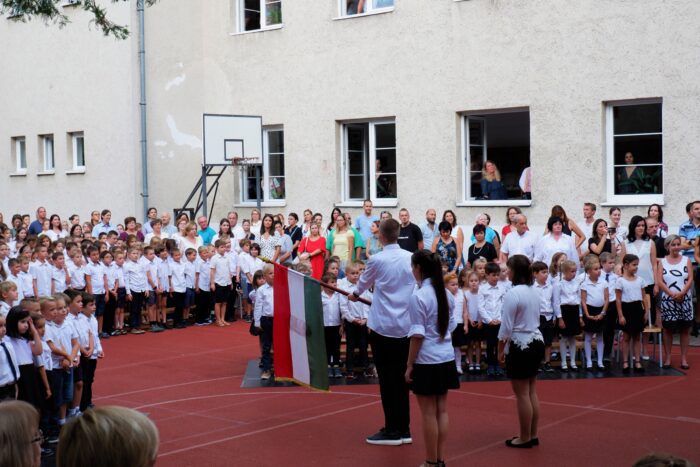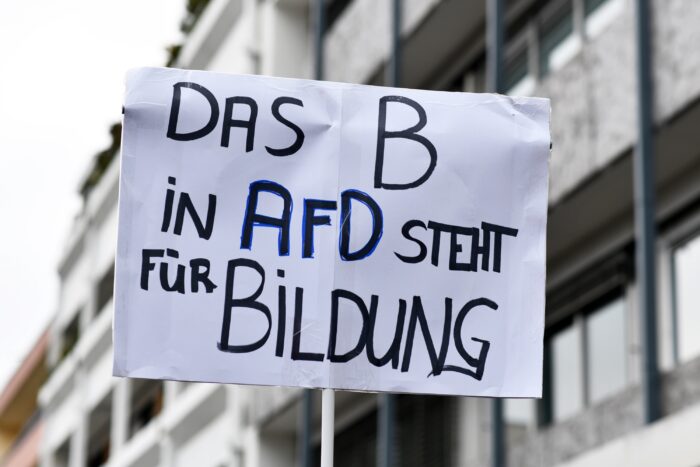Find all related Progressive Post
Progressive Post
It is time to walk the talk. That is what the European Parliament’s new report on Turkey makes points out. Recently, the Turkish government has declared its desire to come closer to the EU. Now, it should prove it with real facts.
The European Parliament has finally adopted its long-overdue report on Turkey. Extraordinarily, it covers a period of two years: 2019 and 2020. But it is also extraordinary in its criticism. It is probably the toughest report on Turkey the EP has ever adopted. And that is not because of whim or spite. It is just an objective and frank attempt to assess the appalling democratic regression suffered in the country in these two years. It also reflects the lowest point of our relations in decades, that has been reached in the last months because of an unprecedentedly aggressive Turkish foreign policy.
The key messages of the report have three main recipients: the government of Turkey, the Turkish society as well as the other EU institutions and member states.
To the Government of Tukey: we do recognise as a positive sign the steps taken to de-escalate tensions in the Mediterranean and the recent change of attitude – after a period of harsh anti-EU rhetoric – with declarations of good intentions and renewed promises of reforms. Nevertheless, beyond the nice words, the harsh reality is that Turkish society continues to suffer daily from a dire state of fundamental freedoms and of the rule of law. And both continue to deteriorate. The Turkish ruling elite keeps pushing the country down an authoritarian interpretation of a highly centralised presidential system that severely affects the separation of powers and the necessary checks and balances of any functional democratic system. The repression of any critical voice – opposition, journalists, lawyers, academics, organised civil society, students and others – has become a deliberate, systematic, and ruthless state policy.
In this context, nice words – like Action Plans, Reform Packages, and so on – are not enough anymore. The Turkish government needs to walk the talk, proving with concrete, real facts the sincerity of its current president, Recep Tayyip Erdoğan, good intentions. Among others, by complying with the rulings of the European Court of Human Rights, by putting an end to the crackdown on the opposition parties – particularly the Peoples’ Democratic Party (HDP) which is at risk of being banned–, by ending the abuse of the anti-terror law and penal code in order to suppress any criticism, and by reversing the shameful and incomprehensible withdrawal from the Istanbul Convention.
It is in the hands of the Turkish government to do it. The European Union – no matter how much we would try – simply cannot force Turkey to become a full and advanced democracy. There is no incentive we could offer that can replace the necessary political will and, unfortunately, it seems that this will is still lacking.
To the Turkish society, as a whole, but particularly to that large majority that continues to look hopefully towards Europe, we say from the Parliament that we are not forgetting them for a moment. Turkey, like any other country, is much more than its government. Even if too frequently, particularly in the European political scene, everything seems to be reduced to its current President, Recep Tayyip Erdoğan.
Turkey is a great and complex country, with a vibrant and plural civil society. But it continues to be a great unknown for many in Europe – and ignorance is the germ of prejudice. We must all work for more mutual knowledge in the conviction that our historical, societal, and economic ties go far beyond the conjuncture of any political moment. We must keep all our efforts from the EU to sustain and support all those in Turkey who, day by day, despite the enormous difficulties and risks they face, simply try to fully exercise their rights, or to do their job the best way they know.
To the European Commission, but especially to the Council and the member states: the time has come for a serious reflection on what we want to do with our relations with Turkey. There is no common vision within the Council, nor among the three EU institutions, and our capacity of action suffers from that. Division, as always, is our greatest weakness, our greatest enemy.
It is not possible to continue our merely transactional relation with Turkey, forgetting that it is still, and despite all, a candidate country to the EU. We cannot forsake the internal situation of freedoms and rule of law for other geopolitical and economic interests. If we do so, we will abandon the pro-European and pro-democratic civil society that we claim to protect.
That is why the European Parliament has kept a very firm stance and continues to insist that human rights cannot be brushed off the table, and of our common strategy towards Turkey. There can be no ‘positive agenda’ without progress under the rule of law, as there can be no modernisation of the Customs Union without a clear democratic conditionality. The defence and promotion of our values cannot be relegated just to nice speeches, nor can they be a matter of concern of only one of the EU institutions, while the rest go ahead with business as usual. If we want to be credible, if we want to be effective, they must be at the core of our foreign policy, and we must show it with concrete facts.
For much criticism it contains, this report also conveys clear positive messages and proposals to move forward in a constructive way. Turkey has an extraordinary potential for progress, and so have our relations, if there is the political will. I do hope that this report will remain the most critical one of all. It closes two disastrous years but the next one is yet to be written. The Turkey of tomorrow will of course be what Turkish society wants. We, the Parliament, have once again renewed our commitment for a more democratic Turkey to get closer to the Union. If Turkey really wants, the door is still open.
| Cookie | Duration | Description |
|---|---|---|
| cookielawinfo-checkbox-advertisement | 1 year | Set by the GDPR Cookie Consent plugin, this cookie is used to record the user consent for the cookies in the "Advertisement" category . |
| cookielawinfo-checkbox-analytics | 11 months | This cookie is set by GDPR Cookie Consent plugin. The cookie is used to store the user consent for the cookies in the category "Analytics". |
| cookielawinfo-checkbox-functional | 11 months | The cookie is set by GDPR cookie consent to record the user consent for the cookies in the category "Functional". |
| cookielawinfo-checkbox-necessary | 11 months | This cookie is set by GDPR Cookie Consent plugin. The cookies is used to store the user consent for the cookies in the category "Necessary". |
| cookielawinfo-checkbox-others | 11 months | This cookie is set by GDPR Cookie Consent plugin. The cookie is used to store the user consent for the cookies in the category "Other. |
| cookielawinfo-checkbox-performance | 11 months | This cookie is set by GDPR Cookie Consent plugin. The cookie is used to store the user consent for the cookies in the category "Performance". |
| csrftoken | past | This cookie is associated with Django web development platform for python. Used to help protect the website against Cross-Site Request Forgery attacks |
| JSESSIONID | session | The JSESSIONID cookie is used by New Relic to store a session identifier so that New Relic can monitor session counts for an application. |
| viewed_cookie_policy | 11 months | The cookie is set by the GDPR Cookie Consent plugin and is used to store whether or not user has consented to the use of cookies. It does not store any personal data. |
| Cookie | Duration | Description |
|---|---|---|
| __cf_bm | 30 minutes | This cookie, set by Cloudflare, is used to support Cloudflare Bot Management. |
| S | 1 hour | Used by Yahoo to provide ads, content or analytics. |
| sp_landing | 1 day | The sp_landing is set by Spotify to implement audio content from Spotify on the website and also registers information on user interaction related to the audio content. |
| sp_t | 1 year | The sp_t cookie is set by Spotify to implement audio content from Spotify on the website and also registers information on user interaction related to the audio content. |
| Cookie | Duration | Description |
|---|---|---|
| CONSENT | 2 years | YouTube sets this cookie via embedded youtube-videos and registers anonymous statistical data. |
| iutk | session | This cookie is used by Issuu analytic system to gather information regarding visitor activity on Issuu products. |
| s_vi | 2 years | An Adobe Analytics cookie that uses a unique visitor ID time/date stamp to identify a unique vistor to the website. |
| Cookie | Duration | Description |
|---|---|---|
| NID | 6 months | NID cookie, set by Google, is used for advertising purposes; to limit the number of times the user sees an ad, to mute unwanted ads, and to measure the effectiveness of ads. |
| VISITOR_INFO1_LIVE | 5 months 27 days | A cookie set by YouTube to measure bandwidth that determines whether the user gets the new or old player interface. |
| YSC | session | YSC cookie is set by Youtube and is used to track the views of embedded videos on Youtube pages. |
| yt-remote-connected-devices | never | YouTube sets this cookie to store the video preferences of the user using embedded YouTube video. |
| yt-remote-device-id | never | YouTube sets this cookie to store the video preferences of the user using embedded YouTube video. |
| yt.innertube::nextId | never | This cookie, set by YouTube, registers a unique ID to store data on what videos from YouTube the user has seen. |
| yt.innertube::requests | never | This cookie, set by YouTube, registers a unique ID to store data on what videos from YouTube the user has seen. |
| Cookie | Duration | Description |
|---|---|---|
| COMPASS | 1 hour | No description |
| ed3e2e5e5460c5b72cba896c22a5ff98 | session | No description available. |
| loglevel | never | No description available. |


